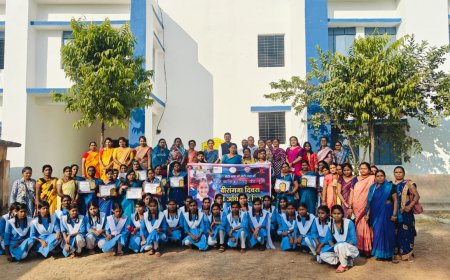DOE Circular Today: Key Updates and Implications
The Directorate of Education (DoE) plays a pivotal role in shaping educational policies and practices across India. As of May 9, 2025, several significant circulars have been issued that impact various facets of the education system. This article delves into the latest DoE circulars, highlighting their key aspects and implications for schools, teachers, and students.
Overview of Recent DoE Circulars
The DoE's recent circulars encompass a range of topics, from school holidays to teaching methodologies. Below is an overview of some notable circulars:
1. Extended Summer Vacation in Delhi Schools
In a bid to provide relief from the intense heat, the DoE has announced that all government and government-aided schools in Delhi will remain closed from May 11 to June 30, 2025. Teachers are scheduled to return to school from June 28 to June 30, 2025.
2. Hybrid Mode Classes for Primary Students
Due to the implementation of restrictive measures under GRAP III, the DoE has directed all school administrations to conduct classes for students up to Class V in hybrid mode. This approach aims to balance in-person and online learning, ensuring continuity in education while adhering to health guidelines.
3. Prohibition of Mobile Phones in Schools
The DoE has issued a directive prohibiting the use of mobile phones in classrooms, libraries, playgrounds, and across school premises for both teachers and students. Schools are encouraged to set up helplines to facilitate essential communication in case of emergencies.
4. Implementation of Bagless Days
In line with the National Education Policy 2020, the DoE has mandated the implementation of 10 'bagless days' in schools for students of classes six to eight. These days are designed to make learning an experiential, joyful, and stress-free experience for students.
5. Online Admissions for EWS and DG Categories
The DoE has issued a circular outlining tentative vacancies for online admission of students from Economically Weaker Section (EWS) and Disadvantaged Group (DG) categories in entry-level classes in Delhi’s private unaided recognized schools for the academic session 2024-25. This initiative aims to ensure equitable access to quality education for all students.
Recent DoE Circulars
| Circular Title | Date Issued | Key Points |
|---|---|---|
| Extended Summer Vacation in Delhi Schools | Apr 14, 2025 | Schools closed from May 11 to June 30; teachers return from June 28 to June 30 |
| Hybrid Mode Classes for Primary Students | Dec 16, 2024 | Classes up to Class V to be conducted in hybrid mode due to GRAP III restrictions |
| Prohibition of Mobile Phones in Schools | Oct 24, 2024 | Ban on mobile phone usage in classrooms, libraries, and playgrounds; helplines to be set up |
| Implementation of Bagless Days | Oct 23, 2024 | 10 'bagless days' to be implemented for classes six to eight to promote experiential learning |
| Online Admissions for EWS and DG Categories | Jan 18, 2024 | Online admission process for EWS and DG students in private schools for the 2024-25 session |
Key Takeaways
-
Extended Summer Vacation: Students in Delhi will benefit from a longer summer break, providing ample time for rest and rejuvenation.Hybrid Learning: The adoption of hybrid learning models ensures that education continues seamlessly, even amidst health-related challenges.
-
Mobile Phone Ban: The prohibition of mobile phones aims to minimize distractions and promote focused learning environments.
-
Bagless Days: Implementing bagless days encourages creative and hands-on learning experiences, reducing academic stress.
-
Equitable Admissions: The online admission process for EWS and DG categories promotes inclusivity and equal opportunities in education.
Conclusion
The recent circulars issued by the Directorate of Education reflect a proactive approach towards enhancing the quality of education and ensuring the well-being of students and teachers. By addressing various aspects of the educational ecosystem, these directives aim to create a more inclusive, engaging, and effective learning environment. Stakeholders are encouraged to stay informed about these developments and implement the necessary measures to comply with the new guidelines.




























